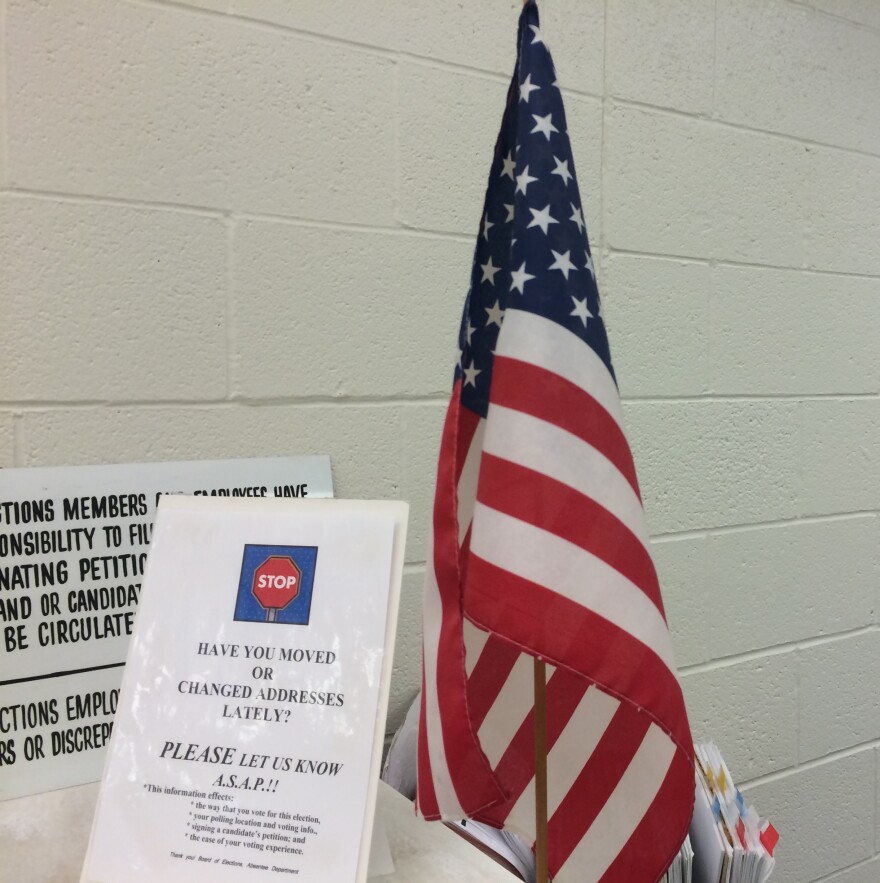While the presidential debates veer into personal style and body parts, Ohioans main concern remains the economy. So a number of newspapers and other partners, including WKSU, are approaching this year’s election by challenging the candidates to focus on the economy.
WKSU’s M.L. Schultze spoke with Akron Beacon Journal reporter Doug Livingston about attempts to ensure voters have a say in framing this year’s political dialogue.
The project began with a poll conducted by the Bliss Institute of Applied Politics at the University of Akron. It gauged Ohio voters’ attitude toward politics. The short read? It’s pretty bad -- and negative campaign ads suggest one reason why.
Now a deeper dive suggests another: The people running for president either don’t get or don’t often address the economic uncertainty that woven into many Ohioans’ lives. Doug Livingston says the feeling of unease didn’t begin with jobs lost in the great recession.
Jobs and wages
“Even if we reach that point where we get back to the 2007 levels, we’re still 215,000 jobs behind where we were back in 2000. And the jobs that are returning aren’t paying as much as the ones that left. We’re losing these high-paying, low-skilled jobs that required little education.”
Livingston says there is a boost in wages in higher-skilled jobs, but there are fewer of those jobs.

And “wages since 2000 is the other side of this equation. We can’t just look at the number of jobs that we’ve added and assume everything is fine. … And I think that’s what resonates most with the voters.”
From college to pensions
Other economic issues on those voters’ minds include the cost of college and what comes next.
“Thirty years ago, they graduated from the University of Akron, easily paid off their student-loan debt and got a job no problem. Meanwhile, they’ve got kids … working in industries they didn’t get a degree in. And they’ve got other kids who are going through who are having trouble paying for college.”
Meanwhile younger people “don’t have the disposable income to get mortgages and car loans, all those things that stimulate the economy.”
At the other end, an increasing number of voters are worried about cuts they’re facing in their pensions.
So what are the candidates saying?
All are bigger issues that go well beyond the boom and busts of recessions. “I think we need to think long term, … at the longer-term impact of gradual job loss in Ohio. … And I think once we get out of that four-, five-, six- year economic cycle of thinking, we can start looking down the road and seeing what policies and plans are really best suited to impact the broadest base of voters.”
Livingston says even liberal voters who care about issues such as marriage equality say candidates need to address issues with a broader impact, as well, “issues that hit the middle class right in the gut.”
Livingston says Bernie Sanders comes closest to addressing those issues, but much of the economic discussion of presidential candidates is laid out in broad strokes of trade and tax policy.
“I think there’s something of a disconnect and the voters that we spoke with, whether they’re Democrats or Republicans – Bernie Sanders, Hillary Clinton, Donald Trump, John Kasich fans -- they want to hear about the economy and … they don’t hear the media talking about the economy and that’s partly because they don’t hear the campaigns talking about the economy.”
And “I can tell you that research from MIT would show that the nation’s largest newspapers have not covered the economy as much as the public has been interested in it.”
Doug Livingston with the Akron Beacon Journal acknowledges voters have other concerns and that Pew and other surveys in the last year showed terrorism and foreign policy issues spiking above the economy – albeit briefly.
But he says those concerns appear to be driven by the campaigns, rather than being an integral part of people’s lives. And he says that’s why the project includes pressing candidates for detailed ways their being president would make Ohioans’ lives better.





